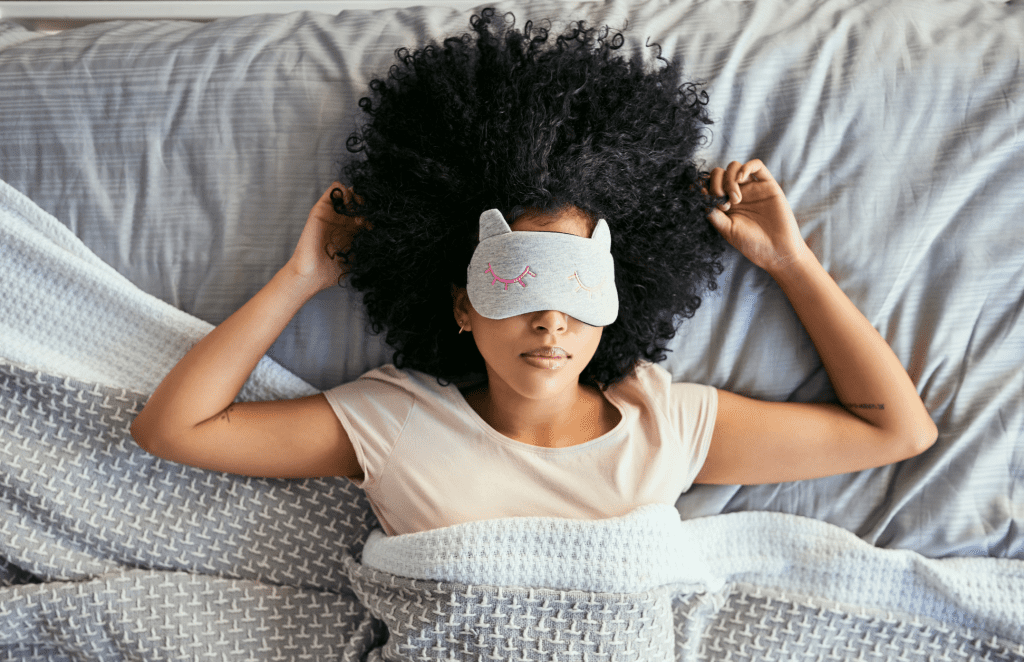Most of us have heard that eight hours of sleep is the sweet spot for a good night’s rest. But let’s be honest—between late-night Netflix binges, endless phone scrolling, and the worries of daily life, consistently getting a full eight hours can feel nearly impossible. Unfortunately, research shows that sleep isn’t just a luxury; it’s essential for long-term health. Poor sleep, whether too much or too little, may actually reduce your lifespan. So, what’s the ideal amount of sleep, and how can you improve your sleep quality? Let’s dive in.

The Alarming Effects of Sleep Deprivation on Your Health
In today’s fast-paced world, many people sacrifice sleep to keep up with daily demands. But according to Dr. Dan Friedrich, skimping on sleep could have serious consequences for your health. In a recent video, he warned, “If you think you can survive on only four to five hours of sleep every night, you’re going to have an early death.”
Research supports Dr. Friedrich’s statement. Studies consistently show that chronically undersleeping—getting less than five hours per night—significantly increases the risk of early death, particularly from cardiovascular disease. Older adults who sleep fewer than five hours are particularly vulnerable, with a 25% increased chance of premature death. It’s a stark reminder of how critical adequate sleep is to overall health.
Why Getting Too Much Sleep Isn’t Ideal Either
While too little sleep is undeniably harmful, sleeping too much may also have adverse effects. Dr. Friedrich points out that sleeping more than nine hours per night can be detrimental to health, linking it to increased risks of various diseases. According to studies, the ideal range for sleep is between six and eight hours, with a minimum target of seven hours for most adults. Consistently exceeding nine hours, on the other hand, may indicate underlying health issues or contribute to conditions such as obesity, depression, and even cognitive decline.
The takeaway? Balance is key. Striving for seven to eight hours per night can provide significant benefits without the risks associated with too much or too little sleep.
@drdanfriederich If you want an early death, sleep 4-5 hours a night 😴 . . . #eyehealth #optometrist #doctorsofinstagram #eyehealthtips #dryeyes #health #fitness #healthyrecipes #optometry #eyewear #optician #healthspo #fitlifestyle #optical #wellness #healthychoices #fitnesslifestyle #healthylife #fitspiration #healthyliving #fitfood #gym #fit #healthyfood #healthylifestyle #livehard #75hard #nutrition #sleeptips ♬ original sound – Eyeganics
How Sleep Affects Long-Term Health and Disease Risk
One study conducted by University College London followed 7,864 people over the age of 50, examining the link between sleep and long-term health conditions. The results were eye-opening: older adults who regularly slept fewer than five hours had a markedly higher risk of developing chronic diseases and experiencing disability. The lead author, Dr. Severine Sabia, explains that sleep is a critical factor in “multimorbidity”—having two or more chronic diseases, a condition that’s rapidly rising in high-income countries.
Sabia emphasizes that sleep habits change as we age, often resulting in shorter or fragmented sleep. However, the research found that poor sleep quality and duration are directly linked to the development of multiple chronic illnesses, especially in older adults. Clearly, sleep is more than just rest; it’s a vital part of disease prevention and maintaining quality of life.
Signs You’re Not Getting Enough Quality Sleep
Think you’re just “functioning fine” on five hours of sleep? There are several indicators that your sleep habits may be affecting your health, even if you’re not aware of it. Here are some signs you might be undersleeping:
- Low Energy and Constant Fatigue: Always feeling drained, even after a night’s rest, is a red flag.
- Mood Swings and Irritability: Lack of sleep can significantly impact emotional regulation.
- Poor Concentration and Memory: Struggling to focus, retain information, or make decisions may indicate inadequate sleep.
- Frequent Illness: A weakened immune system is often linked to sleep deprivation, making you more susceptible to colds and infections.
If you’re experiencing these symptoms regularly, it’s worth examining your sleep habits and making adjustments to improve your overall health.
Tips for Improving Sleep Quality and Duration
Good sleep doesn’t happen by accident. Dr. Sabia and other sleep experts suggest implementing specific habits, or “sleep hygiene” practices, to encourage better rest. Here are some simple yet effective tips to help you sleep better and longer:
1. Set Up a Sleep-Friendly Environment
Creating a space that encourages rest is crucial. Make sure your bedroom is dark, quiet, and at a comfortable temperature. Blackout curtains, a sound machine, and a fan or air conditioner can all contribute to a more restful environment.
2. Limit Exposure to Electronic Devices
Electronic screens emit blue light, which can disrupt the body’s natural sleep-wake cycle. Avoid using devices like smartphones, tablets, or laptops at least an hour before bed. Consider charging your devices outside the bedroom to minimize temptation.
3. Avoid Large Meals Before Bedtime
Eating a heavy meal too close to bedtime can interfere with sleep quality, leading to indigestion and discomfort. Try to finish your last meal at least two to three hours before going to bed. If you’re hungry closer to bedtime, choose a light snack instead.
4. Stay Active During the Day
Regular physical activity can help regulate sleep patterns. However, avoid intense workouts close to bedtime, as this can make it harder to wind down. Aim for at least 30 minutes of moderate exercise most days, ideally earlier in the day.
5. Get Exposure to Natural Light
Natural light exposure during the day helps regulate your body’s internal clock, making it easier to fall asleep at night. Try spending at least 20–30 minutes outside each day, especially in the morning.
What to Avoid for Better Sleep
Just as there are actions you can take to improve sleep, certain habits should be avoided to promote better rest.
- Caffeine and Alcohol: Both can interfere with your sleep cycle. Try to avoid caffeine after the afternoon and limit alcohol consumption before bed.
- Irregular Sleep Schedules: Going to bed and waking up at inconsistent times can disrupt your body’s internal clock, leading to poor sleep quality. Aim to stick to a consistent schedule, even on weekends.
- Over-Relying on Naps: While short naps can be refreshing, long or late naps can make it harder to fall asleep at night. If you need a nap, keep it to 20–30 minutes and avoid napping late in the day.
The Long-Term Benefits of Consistent Sleep
By committing to regular, quality sleep, you’re not only improving your immediate health but also protecting yourself against long-term risks. Quality sleep strengthens the immune system, supports cognitive function, and reduces the likelihood of chronic diseases such as heart disease, diabetes, and obesity. Additionally, a healthy sleep routine can improve your mental well-being, making it easier to manage stress and maintain a positive outlook.
According to experts, consistent sleep habits may also slow the aging process, as they allow the body and mind time to repair and rejuvenate. In other words, good sleep is one of the most accessible and effective ways to improve your health and longevity.
Conclusion: Make Sleep a Priority for a Healthier, Longer Life
The science is clear: quality sleep is essential for both short-term wellness and long-term health. Whether you’ve been sacrificing sleep for work, social media, or late-night entertainment, it’s time to reassess your priorities. Small changes—like setting a regular sleep schedule, avoiding screens before bed, and creating a peaceful bedroom environment—can make a world of difference.
While adjusting your sleep habits may take some effort, the rewards are undeniable. Prioritize sleep as an essential part of your health routine, and you’ll find it’s a powerful tool for living a healthier, longer, and more vibrant life.


